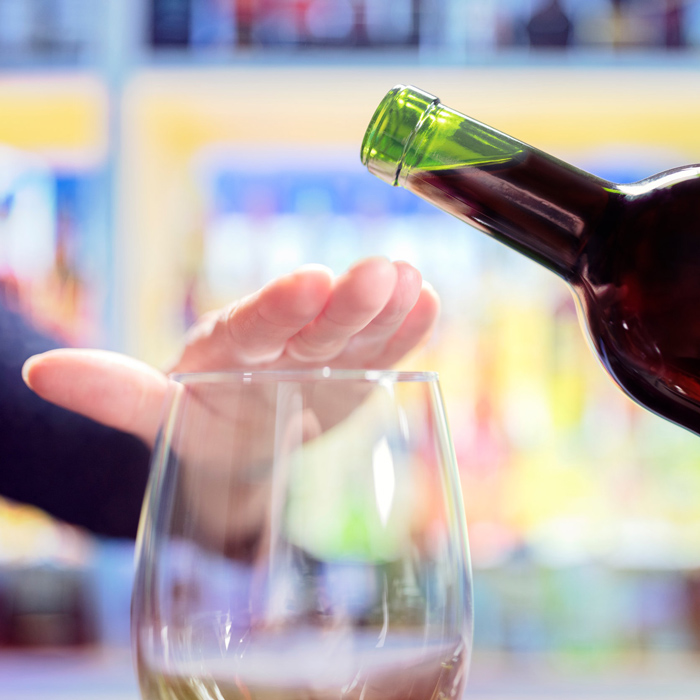The relief on Thursday last week was great among the representatives of the associations and the sector when the result of the vote on a resolution of the European Parliament to the Commission was announced. The resolution concerned the report of the Parliamentary Special Committee on Cancer Action (BECA) on strengthening the EU's fight against cancer. The 63-page report only deals with alcohol consumption in paragraphs 15 and 16.
It basically states that the lower the alcohol consumption, the lower the risk of cancer. The report again refers to the often criticised study, but quoted by the WHO, according to which it is "safest not to consume alcohol at all if cancer is to be prevented". The BECA report emphasises that "the lower the alcohol consumption, the lower the risk of cancer". It goes on to say that "harmful alcohol consumption (is) a risk factor for many different types of cancer (...)."

The report therefore recommends that the European Parliament "reduce harmful alcohol consumption by at least ten percent by 2025". It calls for "a European strategy for the total abstinence of underage drinking, respecting the principle of subsidiarity and existing national legislation on age limits for alcohol consumption".
Minors should also be protected from relevant advertising messages and product placements and sponsorship on the net. The report explicitly calls for banning alcohol advertising and sponsorship at sporting events where minors are the main participants. And the revision of the legislation on alcohol taxation would have to be revised. In plain language: an alcohol tax and thus a minimum price is recommended.
The fact is: according to renowned medical studies, an estimated ten percent of all cancers in men and three percent of all cancers in women in Europe are due to alcohol consumption. Alcohol can lead to addictive behaviour and thus to much suffering. Alcohol, even in wine, is a cell-damaging poison. It is undisputed that access to and handling of alcohol has been far too lax for a long time. Some questions about the possible bans on advertising and sponsorship now come to mind: Will James Bond now have to do without his champagne and Bordeaux, or do these films in the future fall under youth protection? Will the UEFA Champions League soon become a beer-free zone? Or will fans in the future only be allowed into the stadium when they are of age?
Industry representatives across Europe are cheering the outcome of the vote. The original draft provided for much more rigid recommendations: The end of subsidies for the wine industry, including wine growing, would have had profound consequences for producers. A complete ban on advertising would also have deprived many marketing associations and institutions of their livelihood. Particularly sharply criticised by industry representatives was the placement of warnings on labels that alcohol consumption is harmful to health, as demanded in the first versions of the report - in a design familiar from cigarette packs.
Throughout the report, the word "harmful" has now been placed before the word "alcohol consumption", leaving much room for interpretation. For what harmful consumption means remains unspecified - despite the explicit warning that it is safest not to drink alcohol. The report is a typical compromise for the EU: industry lobbyists as well as strictly health-oriented politicians can read their positions out of it - and interpret them into it. This makes the coming discussions about details and possible restrictions challenging - and puts the industry on the defensive despite the jubilation.
 Christian Schwörer
Christian SchwörerOIV Director General Pau Roca expressed relief: the distinction between consumption and harmful consumption is "conceptually very important" for his work. Christian Schwörer, Secretary General of the German Winegrowers' Association (DWV), also emphasised in his statement: "The adopted text now fundamentally distinguishes between harmful and moderate consumption. It is also recommended to provide consumers with information on moderate and responsible alcohol consumption instead of promoting the use of unjustified health warnings". The Association of European Growing Regions (AREV) also emphasises the difference between moderate consumption and abuse. It even sees this as saving the "intangible cultural heritage of the Mediterranean diet".
The Italian MEP Herbert Dorfmann from South Tyrol, who lobbied hard for amendments to the original motion, stressed in an interview with vitisphere.com: "I am not saying that alcohol is not a public health problem, we all know that it can cause many diseases. But there is a distinction to be made between the consumption and abuse of alcoholic beverages. The amendments were important because they make that distinction. Winemakers and consumers who enjoy a glass of wine or beer in moderation understand this."
 Herbert Dorfmann
Herbert DorfmannAustrian MEP Sarah Wiener explicitly disagrees with this in a dispatch: "These amendments show once again how ruthlessly public interests are being lobbied against here. We have all been culturally brought up with the glass of beer or the pint of wine, but nevertheless, and precisely for this reason, we have to admit to ourselves that alcohol is not only a cause of disease, but also a dangerous addictive drug. (...) But instead, the parliamentary report now propagates that our drinking behaviour can also be risk-free."
Herbert Dorfmann has a different assessment: "It is clear that the MEPs who were responsible for the original version of the report with its wording 'no safe level' consider us to be members of the wine lobby. But I don't believe that this is about a lobby. There are hundreds of thousands of winegrowers and wine merchants in Europe. I myself come from a family of winemakers and it is perfectly legitimate for them to disagree with a policy that sees their profession as harmful."
Which demands of the report the commission will translate into concrete regulations is currently open. As a rule, however, the commissioners will closely follow the recommendations of the parliament. Access to alcoholic beverages is therefore likely to be regulated even more restrictively, especially for young people. Information on moderate and responsible alcohol consumption on labels will come, as will information on ingredients and nutritional values. A tax or even a minimum price for alcoholic beverages is considered likely by many experts.
Whether alcohol addicts can actually be better prevented from abusing alcohol with stricter restrictions remains to be hoped - and to be seen. Fact is: The wine industry as part of the alcohol industry is now In Focus under the observation of politicians, institutions and the influential World Health Organisation WHO. Healthy lifestyles, the renunciation of meat and alternative dietary attitudes often collide with the lived use of alcohol. The latter must therefore not provide further occasions for new attacks. Not to negate the dangers of alcohol, but at the same time not to let it spoil the pleasure of conscious enjoyment: That must be the goal. Only if we treat wine like a cultural asset can we protect wine culture. This time we have escaped harsher cuts. It is now up to all those involved in the wine industry to ensure that this remains the case in the future. Because the BECA report is the prelude to a new, much more critical attitude to wine than ever before on the part of those with political responsibility. The demands for restrictions are no longer just in a paper of the EU administration. They are now the official demands of the European Parliament. And that will have consequences.
Photos: ©123rf, ©herbert-dorfmann.eu, ©DWV